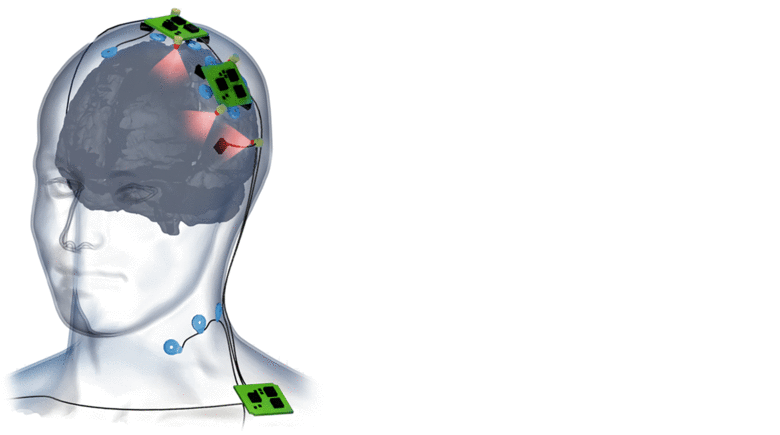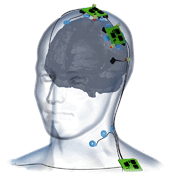
For the further development of the fields of telemedicine, neurotechnology and Brain-Computer Interfaces (BCI), advances in hybrid multimodal signal acquisition and processing technology are invaluable. Currently, there are no commonly available hybrid devices combining bio-electrical and bio-optical neurophysiological measurements – here Electroencephalography (EEG) and functional Near Infrared Spectroscopy (fNIRS). Our objective was the design of such an instrument that is also miniaturized, customizable and wireless; we contribute to the endeavor of advancing neurotechnology further beyond traditional applications: toward out of the lab use and into a broader context of wearable sensor applications, using hybridization, contextualization and multiple modalities to increase robustness of applications. The resulting Mobile, Modular, Multimodal Biosignal Acquisition architecture (M3BA) is based on a high-performance analog front-end optimized for bio-potential acquisition, a microcontroller, and our previously published open source openNIRS technology. The designed M3BA modules are very small configurable high precision and low-noise modules with full input linearity, Bluetooth, 3D accelerometer and low power consumption. They support flexible, user-specified biopotential reference setups, and Wireless Body Area/Sensor Network (WBAN/WBSN) scenarios. Extensive performance characterization and in-vivo experiments confirmed functionality and quality of the designed architecture.
Telemedicine and assistive neurotechnology scenarios will increasingly include wearable multimodal sensors in the future. Here, the M3BA architecture can be advantageous in setups that require miniaturized hybrid biosignal acquisition and provides high performance with respect to signal quality and timing. The architecture can significantly facilitate future designs for research in fields related to neurotechnology that rely on customized mobile hybrid biosignal acquisition hardware.

